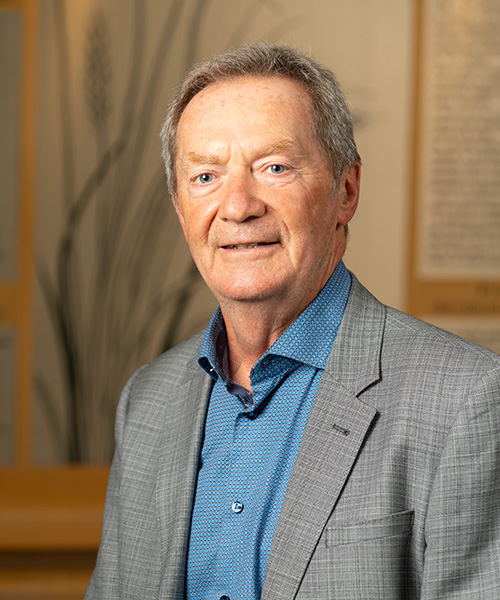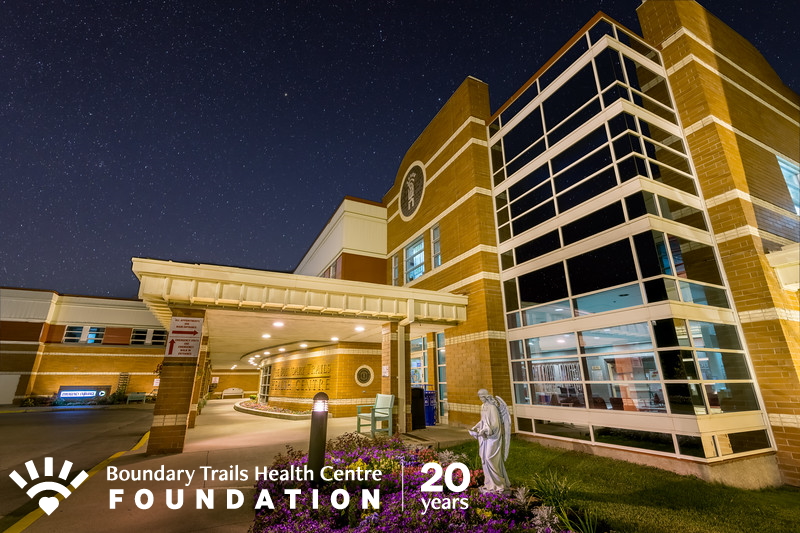Published: Sunday, 10 October 2021 06:00 Written by Robyn Wiebe/Ronny Guenther
Palliative Care Nurse, Blake Derksen
Boundary Trails Health Centre’s (BTHC) Palliative Care Program serves a large population base and is a needed service to care for those with a terminal illness or going through end of life stages. The BTHC Foundation funds two nursing positions and a Spiritual Care position with a budget of $225,000/yr. The BTHC Foundation also funds the nine Palliative Care Rooms with extra equipment to help support the fluctuating number of patients using the rooms, plus those that are living at home for as long as possible.
Registered and Palliative Care Nurse, Blake Derksen, says that while there is nursing staff to do the day to day, bedside care for patients, the roles funded through the BTHC Foundation are more consultative and supportive, registering patients and guiding them and their families through the difficult days ahead.
“We’re very fortunate in this area to have the Palliative Care supports that we do have, and Boundary Trails itself is a wonderful facility also. The money that we get from the Foundation not only allows myself and my coworker, Eunice, and a few others to work and do this work, but it also provides some comforts for people,” said Derksen. “We have extra equipment and we have little things within the building that come through the Foundation, and all of that money is…gathered through donations. So, for us to be able to continue and focus in on this type of work, which is so important for everybody, but especially, in our area here, it all stems from the generosity of our community.”
Derksen notes there are challenges to his work, as the focus is different from a typical nurse. The patients and family accessing Palliative Care are going through difficult times, and the goal is not usually to get better, but they might want to be at home for as long as possible.
“We do have patients and families who often want to be home. Whether that’s for as much time as they can before they return to the hospital, or whether that’s for whatever time they have left in their lives. And it usually requires a lot of collaboration and a lot of planning to be able to get somebody home successfully with the supports that they need, so that they can be where they want to be during their last times, is very rewarding. That’s a very nice part of the job.”
Derksen continued there are more rewards to working in Palliative Care.
“Also, just finding comfort for people, whether that’s symptom control for a patient or whether it’s that support and that presence for family. When you see them kind of relax and understand that things are under control now, and we can use this time ourselves to just be present with our family and our loved ones, that really shows you that you’re doing your part so that they don’t have to think so much about that part.”
Patient and family support can be done in a variety of ways, and Derksen emphasized this is done by working together with other agencies and people.
“We do have a very good collaborative approach; we work very closely with Spiritual Care and then with the doctors and nurses that are on the wards and doing the hands-on care. But we also do deal with, if it’s a home thing, we try to collaborate with Home Care and Social Work and our Regional Palliative Care Nurses, and we have great Palliative Care Specialty Doctors within our facilities. So, it is very much a holistic approach. We zone in on the stuff that we are comfortable with, but we’re not afraid to get help when we need to make the whole picture brighter.”
To support the work that Palliative Care is doing to care for those going through their final days, you can join the BTHC Foundation Donation Conversation.










